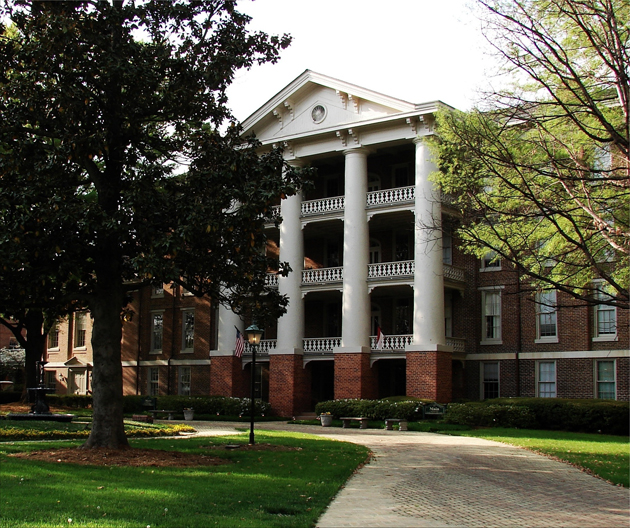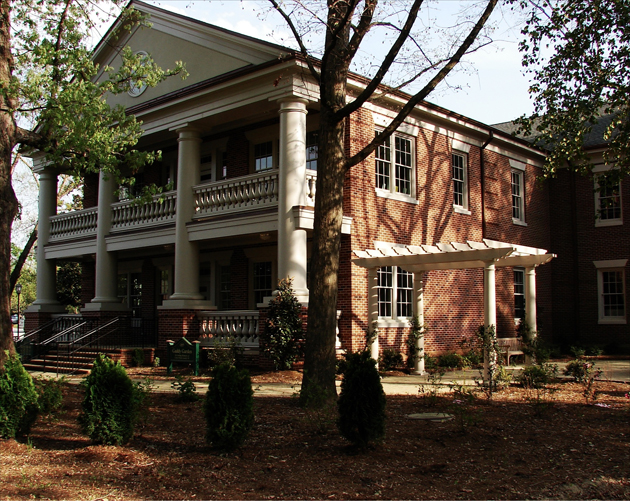Peace College | Eastern North Carolina Now
In 1857, the Presbyterian Synod of North Carolina sought to establish a school for females. Largely due to the donations of William Peace, the institution became a reality.



| National Recovery Administration | NC Past, In the Past, Body & Soul | James "Catfish" Hunter (1946 - 1999) |
|
"Robert F. Kennedy Jr. is a foolish man, full of foolish and vapid ideas," former Governor Chris Christie complained.
Published: Monday, September 15th, 2025 @ 10:18 pm
By: Daily Wire
|
|
In remembrance of the day that will forever seer the concept of 'evil' in our minds, let's look back at that fateful morning, exactly 11 years ago today to that series of horrific events which unfolded before our unbelieving eyes......
Published: Sunday, September 14th, 2025 @ 5:32 pm
By: Diane Rufino
|
|
O'Neill served as a health policy adviser with ties to several healthcare companies.
Published: Sunday, September 7th, 2025 @ 9:52 pm
By: Daily Wire
|
|
The origins of labor Day are rather dubious, born from congressional guilt of Americans shot down, by the Army and U.S. Marshalls, while exercising their first amendment right to congregate and protest during the Pullman Strike in Haymarket Square in Chicago on may 4, 1886.
Published: Monday, September 1st, 2025 @ 9:23 am
By: Stan Deatherage
|
|
New state-of-the-art facility features 144 beds and a healing environment for behavioral health patients
Published: Tuesday, August 26th, 2025 @ 7:53 pm
By: Eastern NC NOW Staff
|
|
Equity has replaced excellence, and Americans are worse off physically and intellectually.
Published: Monday, August 25th, 2025 @ 9:06 am
By: Daily Wire
|
|
The panel referred to pregnant women as "pregnant persons."
Published: Sunday, August 10th, 2025 @ 6:51 pm
By: Daily Wire
|
|
Award highlights ECU Health’s telehealth approach in addressing rural disparities
Published: Saturday, July 12th, 2025 @ 7:25 pm
By: Eastern NC NOW Staff
|
|
If you've ever traveled abroad you are asked this often. It's as if you are given an opportunity to "come clean" and "lay it all out on the table."
Published: Friday, July 4th, 2025 @ 5:11 pm
By: Stan Deatherage
|
|
There are many people who overlook the brilliance of the US Constitution. They argue that it is outdated and unfit to adequately govern such a modern nation as ours in the 21st century.
Published: Friday, July 4th, 2025 @ 4:41 am
By: Diane Rufino
|
|
"When vaccine safety issues have come before Gavi, Gavi has treated them not as a patient health problem, but as a public relations problem."
Published: Saturday, June 28th, 2025 @ 7:59 am
By: Daily Wire
|
|
A recap of this year's convention.
Published: Wednesday, June 11th, 2025 @ 3:03 pm
By: Ray Leary
|